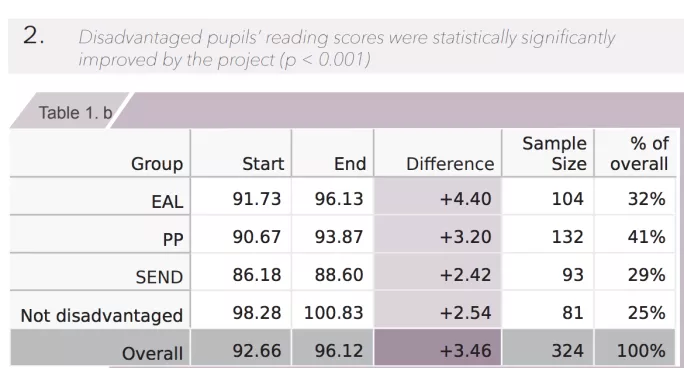A high-profile multi-academy trust says it has found that teaching children a knowledge-rich curriculum can improve their ability to read by boosting their vocabulary and understanding.
The Inspiration Trust found that pupils made good progress with improved scores in group reading tests after taking part in a curriculum research project.
Over four terms, 324 pupils were taught a “content-rich sequenced journey” in seven subjects comprising history, geography, religious education, biology, chemistry, physics and computing.
Ofsted: MAT leader backs inspection critics
Opinion: Knowledge-rich curriculum helps poorer pupils
GCSE: Poor readers struggle more in maths than in English literature
This involved being taught 1,400 more complex “tier 2 and tier 3” words.
A report into the research describes tier 2 words as “high-frequency words used by mature language users across several areas” and tier 3 as words that are “central to building knowledge and conceptual understanding in subjects and disciplines”.
Knowledge-rich curriculum ‘helps disadvantaged pupils’
Inspiration Trust’s chief executive, Dame Rachel de Souza, said: “We found a marked improvement in reading as a result of our interventions.
“The study demonstrates that exposure to more complex words not only accelerates learning in specific subject areas but also improves reading ability, particularly among disadvantaged pupils and pupils for whom English is an additional language.
“The research found that pupils who accurately recalled the most curriculum content made greater improvement in their reading performance. Our experience is that children find learning a knowledge-rich vocabulary stimulating and enjoyable. In turn, this makes it easier for them to develop as readers.
“Once derided by some in the sector, phonics is now accepted as the best way to teach children to read. This research shows that knowledge-based curriculum should follow in phonics’ footsteps.”
The progress of the pupils in reading was measured through a GL New Group Reading Test, which was done at the start, midpoint and end of the project.
The Inspiration Trust’s research report says that, overall, pupils performance improved with the biggest increases being seen in pupils with English as an additional language and those on pupil premium.
The average test score for the pupils involved increased from 92.66 to 96.12 over the course of the project.
In a blog post on the Parents and Teachers for Excellence website, Dame Rachel added: “Children still struggling with reading by the end of primary school will lose access to the curriculum and inevitably spend the rest of their time in education playing catch up.
“The solution may have less to do with how reading is taught than the wider curriculum. One of the major factors preventing disadvantaged pupils from reading fluently is a lack of background knowledge.
“We know that this is particularly true with texts that contain words outside of our everyday experiences. What appears to be a deficiency in reading ability may, in fact, be an impoverished knowledge base.”
The research was carried out by the Inspiration Trust with funding from the Department of Education’s Strategic School Improvement Fund.
The trust runs 14 schools in the Norfolk area.






